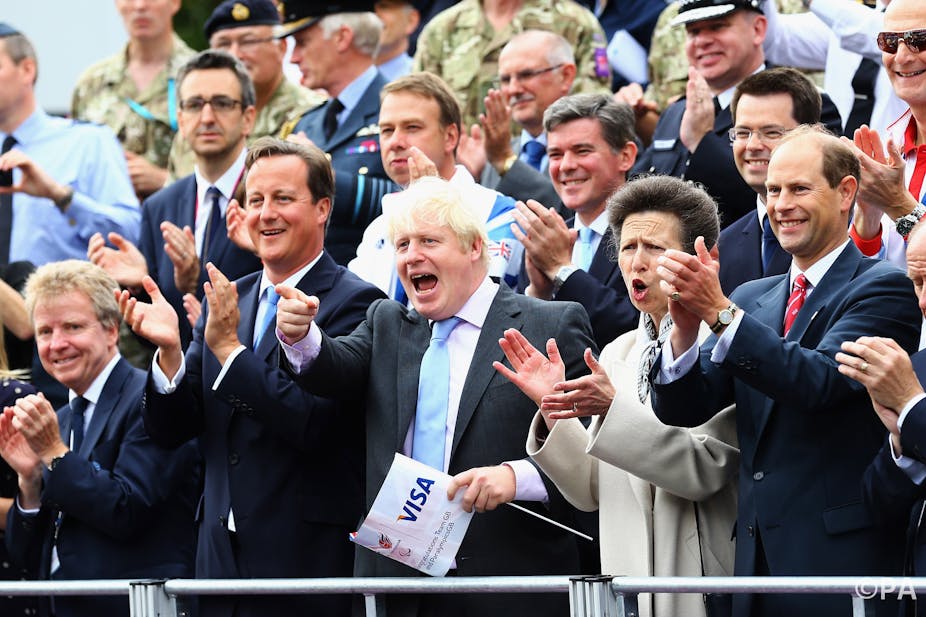Since the financial disaster of the Montreal 1976 Olympics, “economic impact assessment” has become an increasingly popular tool for host governments and organisers to justify the vast expense of major events of this sort. But don’t believe the claims of the powers that be: these assessments are not value-free. The assumptions they rely on often don’t stack up, and the reports are used as a means toward a particular political or economic end.
The recent report into the legacy of London 2012 by the government and the Mayor of London exhibits some of the typical hallmarks of political use of economic impact assessments and their tendency to put a positive spin on the economic legacy of major events.
Indeed, some of the claims seem quite unnecessarily outlandish: for example that “so far £9.9 billion in international trade and inward investment has been won because of the games and games-time promotional activity”. Is all of that trade really down to the games? We must be very cautious about the causal relationship here, even if these deals were facilitated at Olympic-badged events.
To put it in context, this figure is larger than any previous official/sponsored assessment of Olympic economic impacts - by a substantial margin. The return on public funding, estimated at £11.5 billion of added value, is also an outlier compared to other events (although there is no official estimate of the economic impact of Beijing 2008).
The key problem when evaluating the economic benefits of the Olympics is that it is difficult to say what would have happened if the event had not taken place. Indeed, the background document to the report acknowledges that “there is no counterfactual assumption related to spending the public money on anything else”.
Nor is it possible to determine whether the trade and investment deals linked to Olympic-related promotions would have been secured through other channels if the games had not taken place. Host cities such as Barcelona, Sydney or Beijing used the Olympics to promote themselves as global destinations, whereas London was already an iconic world city long before 2012.
On top of this, the size of the economic boost in part reflects the dire underemployment that existed in the aftermath of the global financial crisis. The economic modelling assumed that the Olympics absorbed spare capacity in the UK economy, and thus the “displacement” of preexisting activity (such as building projects in other regions) was minimal.
The detail of the report hardly makes good reading for the government, as it notes “a legacy of higher unemployment” despite the Olympics. Further, the headline figures only tell a partial story, as economic benefits – especially in terms of employment – are concentrated in London and the South East. In this respect, the impact of London 2012 has simply been to reinforce existing imbalances in the British economy – and in the economic experience of its citizens.
Even if we accept that the Olympics created long-term economic capacity, it is possible to question whether this was the best use of money. Here, another problem with the popular “input-output” method of impact analysis becomes apparent, as it does not differentiate between different types of economic activity. Little meaningful distinction is made between gains or losses to the public or private sector and yet the long-term economic benefits of constructing a school or a hospital, or a train link, are quite different from those involved in building a car park or a sports venue (especially if assets are later transferred to private developers at discounted rates, removing any potential for long-term public returns on the assets).
It is also questionable whether the UK economy will see a major return from its businesses positioning themselves in the market for major global event contracts as a result of their 2012 experience.
An Olympic “consultocracy” has emerged since Sydney 2000, wandering nomadically from games to games, selling their expertise to the highest bidder. However, most of the major firms involved in the mega-event industry are multinationals, while the individual consultocrats and trouble-shooters who are now positioned to reap the rewards of their London experience are by no means guaranteed to divert their private economic gains directly back into the UK economy (this is without venturing into the debate over global tax regimes).
London 2012 has clearly had some benefits for the UK in economic and reputational terms. Yet the methods of economic impact assessment are ill-equipped to deal with some of the ambiguities and uncertainties associated with mega-events and their consequences.
These reports rarely challenge their underlying assumptions and tend to emphasise best case scenarios and headline figures. They fail to dig deeper into the regional imbalances of the event, the flawed or exaggerated nature of some causal claims, and the extraction of private economic gain from public investment, at the expense of taxpayers already battered by austerity.

